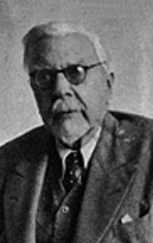Dr. Friedrich Funder

Personalia
Born:
Died:
Profession:
Persecution:
Imprisonment St. Veith 13.03.1938 - 24.05.1938,
Dachau concentration camp 24.05.1938 - 27.09.1939,
Flossenbürg concentration camp 27.09.1939 - 11.11.1939,
Imprisonment August 1944
KZ Number:
Memberships
Curriculum Vitae
Friedrich Funder's parents moved to Dresden in 1879. Friedrich attended grammar school here until 1887. After returning to Graz, he was able to pass his Matura at the Bischöfliches Gymnasium in 1892. He then began studying theology at the Faculty of Theology at the University of Graz with the desire to become a priest. From 1894, he switched his studies to law in Vienna and was awarded a doctorate in law in 1898.
In Graz, he joined the student fraternity Carolina in 1893 and the student fraternity Norica in Vienna. Here he played a key role in the fight for equal rights for the CV at the university.
While still a student, he joined the editorial team of the Reichspost, the leading Catholic daily newspaper and organ of the Christian Social Party [CSP]. From 1896 he worked as an editor, in 1902 he was appointed editor-in-chief and in 1904 he was appointed publisher of the Reichspost, which he remained until 1938.
In the interwar period, Friedrich Funder was involved in Catholic associations, for example as president of the Vienna Catholic Congress in 1929 and as president of the International Association of Catholic Journalists. In 1933/34, he supported the corporative state and was appointed to the State Council from 1934 to 1938.
After the occupation of Austria by the Third Reich, Friedrich Funder resigned from his position at the Catholic publishing house Herold-Verlag, which published the Reichspost, on March 12, 1938 and went to Carinthia to stay with relatives. He was arrested the next day in St. Veit and transferred to the Elisabethpromenade prison in Vienna on April 18, 1938, where he was held until May 24, 1938. From there, he was taken on the 2nd transport to Dachau concentration camp on May 24, 1938. Here, together with the members of his student fraternity Carolina Josef Aigner, Alfred Maleta and Walter Nestor on August 18, 1938 in the canteen of the concentration camp, unnoticed by the guards and other inmates, to mark the 50th anniversary of the founding of the Carolina.
Numerous interrogations by the Gestapo dealt with Friedrich Funder's contacts with Catholic newspaper agencies abroad, especially after the Neue Zürcher Nachrichten and the Strasbourg radio station reported that he had died in Dachau. In the fall of 1939, the almost 70-year-old Funder was transferred to Flossenbürg concentration camp, where he was deployed in the quarry and forced to work hard. He was released on November 11, 1939 on the basis of a decree of clemency from the "Führer", taken to Baden near Vienna after his release, not allowed to leave the city without permission and also banned from writing. Finally, he was commissioned by the archbishop's ordinariate in Vienna to topographically record religious monuments and chapels on the Wechsel and in the Bucklige Welt. His house in Baden was searched several more times, for example when the Gestapo believed him to be involved in an espionage affair.
On 15 September 1941, a certain Erich Müller appeared in Friedrich Funder's apartment, claiming to be a representative of high military authorities in Munich and wanting to win him over for peace negotiations with the Holy See in Rome. A planned trip to Rome, which was due to connections with generals and the Foreign Office in Berlin in the circles around Stauffenberg, was prevented by the events of July 20, 1944. Friedrich Funder was arrested again in August 1944, but was soon released.
Places
Persecution:
Residence:
Multimedia
Citations
Krause, Peter/Reinelt, Herbert/Schmitt, Helmut (2020): Farbe tragen, Farbe bekennen. Katholische Korporierte in Widerstand und Verfolgung. Teil 2. Kuhl, Manfred (ÖVfStG, Wien) S. 81/82.
